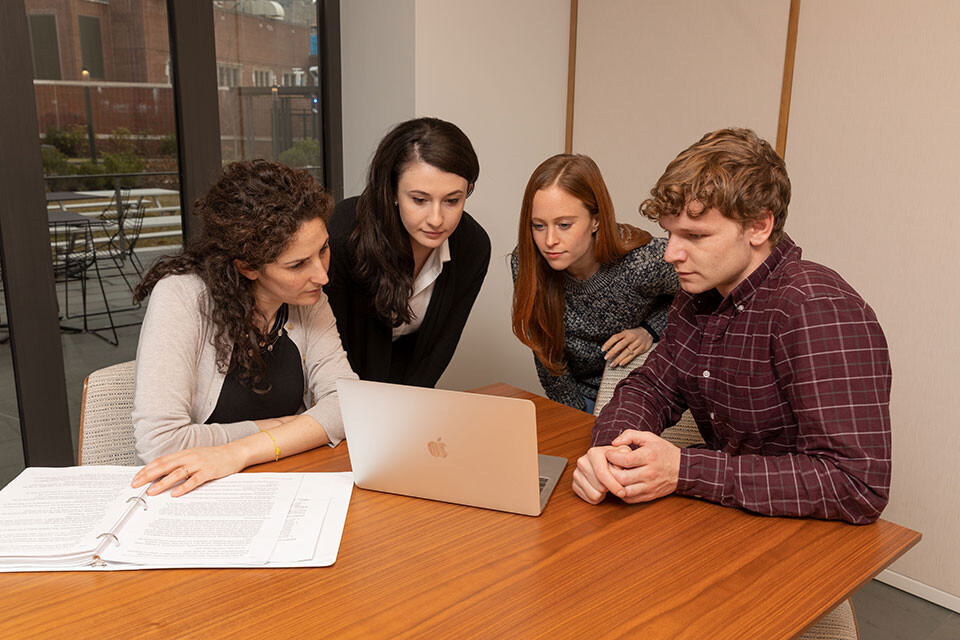
Jill Habig ’09 is the founder and CEO of the Public Rights Project, a civil rights nonprofit that works with local, state, and tribal governments on issues like fair elections, reproductive justice, and workers’ rights.
When Habig entered Yale Law School, most of the other highly ranked law schools did not have local government classes. “They focused mostly on the federal courts, the federal constitution, and federal government service as a career path and overlooked state and local government,” she said.
SFALP has challenged that norm. “I think what it’s done in part is set out a pathway and elevated the prestige and importance of state and local government service,” said Habig. “It has helped set a standard that other elite law schools have started to follow.”
Emma Sokoloff-Rubin ’18 is the director of SFALP. She joined the clinic as a 2L in September of 2016. By January, she said, she was assisting on the sanctuary cities case. “Concepts I had learned in Con Law took on new meaning and urgency as I put them into practice, learning from seasoned government lawyers who were themselves figuring out new and innovative ways to use the power of local government to litigate the most pressing issues of our day,” she said.
Emily Lau ’22, a staff attorney at the State Democracy Research Initiative at Wisconsin Law School, said working in SFALP as a law student illuminated the ways in which working in state and local law can be immensely rewarding.
During her time in the clinic, Lau worked on a successful lawsuit against Uber and Lyft for misclassifying their drivers as independent contractors instead of employees, as well as a groundbreaking climate change lawsuit against the five largest fossil-fuel corporations. The latter lawsuit, filed on behalf of the city of San Francisco, asked the companies to pay for infrastructure necessary to protect the city from the consequences of rising sea levels. “[Working on these cases] really helped me understand the ways in which there are opportunities to vindicate rights under state law in ways that aren’t possible under federal law,” said Lau.
These days, as part of her work with Wisconsin Law School, Lau is helping to create a resource called 50 Constitutions that makes state constitutions more accessible to the public.
Local law can have a dramatic impact on everyday life, Lau said. “If we just think about how the state has police powers and local governments structure and provide basic services such as transportation, schooling, access to water — all these things are handled at the state and local level,” she said. “Or consider, when we think about elections we often think about federal elections, but the state decides how you vote, who gets to vote, and when and where.”
David Louk ’15 is a deputy on the Complex and Affirmative Litigation team at the San Francisco City Attorney’s Office, working on the very team of lawyers who supervised him when he was a student in SFALP. He is one of two clinic alumni who now work full time for the office. The team’s docket is extremely broad, as it handles both affirmative and defensive matters on behalf of the city, county, and state of California, and works with SFALP students to develop new case ideas.
For Louk, too, it’s empowering to work at the local level. “I’m seeing the conditions on the street and what businesses are doing every day as I walk to work, and there’s something really gratifying about being so intimately connected to the place you live and feeling like the work you do has an immediate effect on your community,” he said.
He notes that local government still offers opportunities that are increasingly unavailable at a larger scale.
“A lot of our work is in state courts rather than federal courts, and there’s possibly more room for creativity and testing the laws in a way to reach progressive outcomes that is unlikely for the foreseeable future at the federal level,” he said.




